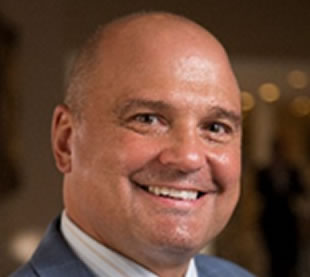
Why An Interest Rate Hike Will Not Stop The Stock Market Rally
The markets continue to climb a wall of worry with only the spectre of fire and fury from a fierce conflict with North Korea dampening the enthusiasm for stocks. Interestingly, as of August 14th the South Korean stock market, as measured by the KOSPI index, was up over 16% for the past year (Source: Bloomberg), indicating at least some belief that conflict will not develop. With the costs of conflicts so high, the odds are for more chatter but (hopefully) no war.
While it seems implausible for stocks to continue to rise after such a historic run up since 2009, the data explains why stocks have been able to defy the emotional worries of a stock market correction, the fears of global instability, and a potential rise in interest rates. Earnings are the biggest determinant of stock prices—not news headlines nor tweets nor fears about what might happen. Interest rates matter, but for a variety of reasons, a rapid rate climb is unlikely for the remainder of 2017.
To be sure, we see some pressure on rates as a result of stronger economic growth from the U.S. and other major economies; but the stock market also continues to benefit from relatively low and stable oil prices, low inflation, and low interest rates. The Federal Reserve Bank (The Fed) has spoken about slowly unwinding some of its “Quantitative Easing,” which could have the effect of raising interest rates—but that is not scheduled to start until October.
One of The Fed’s mandates is to control inflation. Currently we don’t see any hint of runaway inflation; so The Fed has less pressure to control prices and raise interest rates. The Fed’s other mandate relates to employment. We currently have low unemployment and an improving labor market, but since wage growth has only recently ticked up, The Fed is not likely to dramatically change its course at this time.
Yet fear still reigns on Main Street, and investors continue to keep cash on the sideline, hoping to be able to say “I told you so.” But with the Dow Jones Industrial Average hovering near 22,000, the market would have to drop 16% to return to Election Day levels. That would almost bring us into bear-market territory (a drop of 20% or more is officially a bear market), yet there is little to indicate that is an immediate threat. 
Interest Rates Not Yet a Threat
To be sure, this stock market rally will end, but it will more likely end as a result of low or no growth to corporate profits rather than a bounce in interest rates. Historically, rising interest rates occur during a growing economy, but higher rates do not negatively impact stock prices until the 10 year Treasury rates are in the 4% to 5% range–and that is a range that is unlikely to be seen soon.
In recent months, The Fed and the European Central Bank (ECB) have both stated that they will be selling bonds into the open market, thereby decreasing the available supply of money and potentially raising interest rates. Even though they both emphasized that this reversal of policy will be gradual, the markets reacted (e.g., the Euro rose against the dollar after the ECB announcement). This reactivity to any Central Bank action has the result of slowing down any tightening of monetary policy and underscores the likelihood that any action will be deliberate.
Trump Agenda and Its Impact
At this point, the much ballyhooed Trump agenda hasn’t really been the driver of this stock market rally. Congress hasn’t passed an infrastructure spending bill, and we haven’t had meaningful tax reform. This would indicate that the market has indeed rallied due to other factors (e.g., earnings).
If we stay away from protectionist trade policies and deadly conflict and if Congress continues with its regulatory reform and passes a tax bill and an infrastructure spending bill, then the economy could surge, justifying current stock market levels. At that point, The Fed may need to act more aggressively—in which case, hikes to interest rates may serve as a headwind against a rise in stock prices. However, that will take Congressional action, which hasn’t been easy to come by lately.
Learn more about Mark Avallone’s recently released book, Countdown To Financial Freedom
Mark Avallone, MBA, CFP®, CRPS®. www.PotomacWealth.com
Securities and Investment Advisory Services offered through H.Beck, Inc., Member FINRA/SIPC. 6600 Rockledge Drive, 6th Floor, Bethesda, MD 20817 301.468.0100. Potomac Wealth Advisors, LLC is not affiliated with H.Beck, Inc.
This material represents an assessment of the market environment at a specific point in time and is not intended to be a forecast of future events, or a guarantee of future results. This information should not be relied upon by the reader as research or investment advice regarding any funds or stocks in particular, nor should it be construed as a recommendation to purchase or sell a security. Past performance is no guarantee of future results. Investments will fluctuate and when redeemed may be worth more or less than when originally invested. Diversification and asset allocation do not guarantee against loss. They are methods used to manage risk.
* Opinions expressed are subject to change without notice and are not intended as investment advice or to predict future performance.
*The economic forecasts set forth in the presentation may not develop as predicted and there can be no guarantee that strategies promoted will be successful.
* Consult your financial professional before making any investment decision.




Engage us on Facebook
Follow us on Twitter
Tweets by @mymcmedia